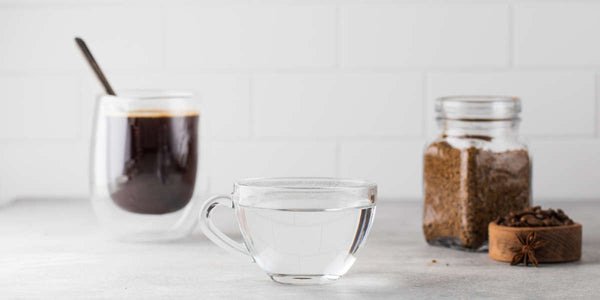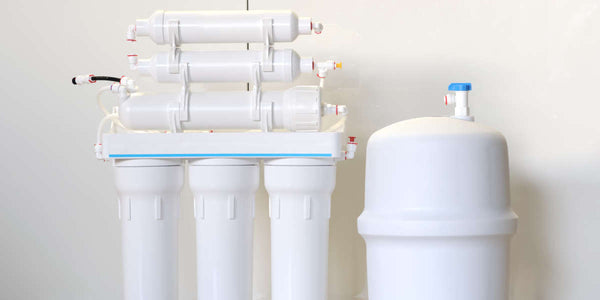Coffee is more than just water and beans. The roast, the grind, and the brewing method play important roles in the final cup. But today we want to talk about water and how it is one of the keys to improving the taste of freshly brewed roasted coffee.
Why Is It Important to Use Good Quality Water for Brewing Freshly Roasted Coffee?
Water is essential for making a great cup of coffee with any coffee brewing method. It not only extracts the soluble flavors from the beans but also helps to create a desirable balance of acids and body. For instance, using hard water can give the Premium coffee a bitter taste, while soft water can make it taste flat.

There Are Characteristics That Are Responsible For The Water Quality. All Of Them Are Important.
Smell and color - it’s obvious that good water doesn’t have any smell nor color. These are the first signs that we usually pay attention to. Mineralization or TDS (total dissolved solids) is the total amount of minerals in the water. For coffee, it is better to use water with a mineralization of 75 to 175 mg / l. Tap or most spring water rarely falls into this range. It is either hard with a mineralization of about 300 mg / l, or too soft - up to 50 mg / l. We recommend water with a mineralization of 100-150 mg/l.
Most tap water has a high chlorine level, which is added to get rid of infections, harmful bacteria and microbes. But when it comes to coffee brewing - chlorine is our enemy. It smells bad and affects the taste not in a good way. To make delicious Freshly Roasted coffee , the chlorine level must be 0.
Ph is also important. Ph is the balance between acidity and alkalinity. If the Ph level is low, the acidity of the water is high and you’ll get the sour coffee. If the Ph level is high, the cup will be bitter. Ideal coffee brewing methods Ph level coffee brewing methods for the water for Premium coffee brewing is 7, optimal from 6.5 to 8.
The best way to ensure that you're using the right type of water is to use filtered or bottled water.
For the best result you can use a reverse osmosis system, it will remove any impurities that might be present in your water, including chlorine and other chemicals.
What is Reverse Osmosis?
Reverse osmosis is a water treatment method that consists in the desalination of water.
First, the water is purified from impurities, rust and microbes. Then it passes through a special membrane that allows only H2O molecules to pass through. However, it is important to remember that reverse osmosis water has a very low TDS (total dissolved solids) and alkalinity. Sometimes this can be enough for brewed delicious coffee drinks without the need for additional mineral composition, because some coffee brewing methods and coffees are better suited with lower salinities such as 30 ppm.
But usually for the brewing you will need the water with a higher level (upwards towards 200). Plus it’s important to remember that demineralized water highlights any roasting defects if present. Once the water has been filtered, it's important to add back some minerals that were removed during the filtration process. This can be done by using a remineralization filter.

What is Remineralization?
Remineralization is the process of adding minerals to improve the taste. After purification, osmotic waters are reminded. This means calcium, magnesium, potassium bicarbonate, and other useful minerals will be added in order to get a delicious cup of coffee.
The Premium coffee shops use the Reverse Osmosis Systems with remineralization, but what to do if you are at home and still want to make the best possible coffee cup by your own hands.
Easy! To mineralize your osmosed water (that you can buy in any Grocery store) you need to add the mineral supplements especially made for creating water for home Roasted coffee brewing that you can buy online. Third Wave Water makes great water supplements to use for espresso or filter brewing.
The following water is considered ideal for making coffee:
- Odorless, with mineralization up to 150 mg/l,
- Chlorine-free, with a pH level of around 7.
By using water that meets these coffee brewing methods criteria, you can be sure that you're using the best possible water for brewing coffee, which will result in a tastier final product.
Conclusion
The next time you brew a pot of Freshly Roasted coffee, take a closer look at the water you're using. If it doesn't taste as good as you think it should, or if your Premium coffee seems to have lost its flavor over time, try changing your water source. You may be surprised by how much of a difference it can make in the taste of your coffee. Do you have any tips for making a great cup of Roasted coffee? Share them in the comments below!

